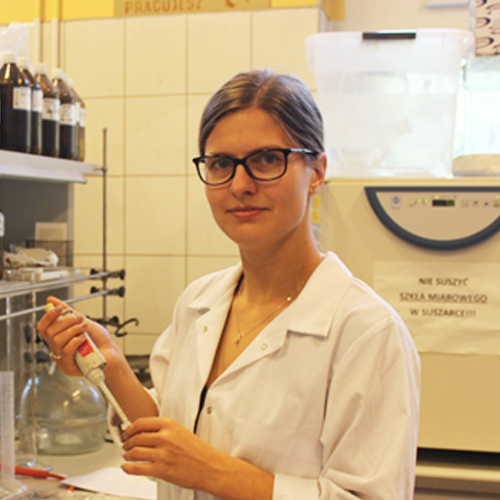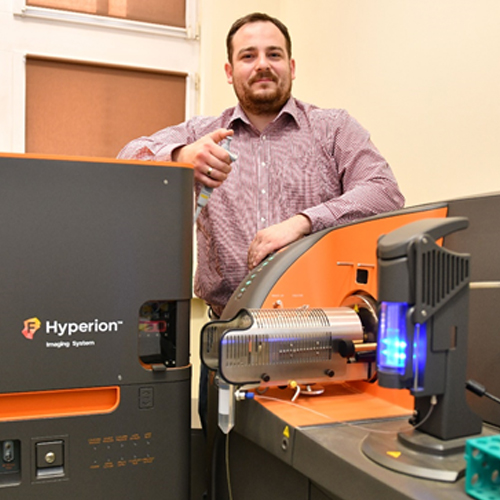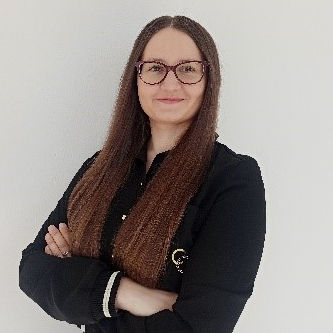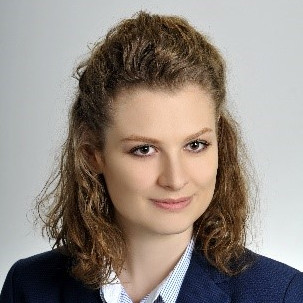Partner 1’s team

Dr Paulina Kasperkiewicz- Wasilewska
TEAM LEADER
First experience in my science research I gained while I was a student of Biotechnology in prof. Jozef Oleksyszyn laboratory in the Medicinal Chemistry and Microbiology Department at the Faculty of Chemistry at Wroclaw University of Science and Technology (WUST) . Afterwards, I completed my master’s degree in Biotechnology, from the WUST, under dr Marcin Siencyzk supervision. During my PhD programme at WUST under prof. Marcin Drag supervision, I focused on the search for human neutrophil elastase substrate specificity applying unnatural amino acids in combinatorial libraries. Currently I am an adjunct professor in the Department of Chemical Biology and Bioimaging at WUST.
Apart from my work at WUST I enriched my scientific background as a postdoc at Sanford Burnham Prebys Medical Discovery (USA) and as a trainee at Cambridge University (England). I participated in many scientific projects as an executor as well as a principal investigator. I am a beneficiary of many scientific awards, including START fellowship founded by Foundation for Polish Science, L’Oreal for Women in Science fellowship and a scholarship from Ministry of Science and Education in Poland.
The main field of my interest is the study of neutrophil proteases in the physiological conditions, as well as in pathology like neutropenia.

Marcin Poręba, PhD
Role in the project – synthesis and biochemical analysis of chemical probes for serine neutrophil proteases using mass cytometry technology
Currently our group possesses the only mass cytometer in Poland. This instrument enables for simultaneous analysis of more than 40 cellular parameters (mostly proteins) in biological samples of various origin. Mass cytometer is among the key equipment within our Team-Net project.
Instrument description. Mass cytometry is a modern analytical technique that combines the advantages of flow cytometry and mass spectrometry. This technique utilizes stable metal isotopes (commonly lanthanides) as tags for labeling antibodies, DNA probes, or chemical probes. Due to the fact that each of these metals (tags) has a unique molecular mass, it is possible to use many such metals in one experiment, because their mass spectra do not overlap. The consequence of this is the ability to measure simultaneously over 40 cellular parameters, which goes far beyond the possibilities of standard fluorescence-based flow cytometry. Over the past few years, mass cytometry technology has developed rapidly, as well as its applications in the study of various diseases including autoimmune diseases, infections or cancer. By using mass cytometry, it became possible to get a detailed insight into biological processes driving multiple diseases, and currently this information is translated into medical applications enabling to monitor treatment progress and predict therapy outcome.
Project description. In the Team-Net project, we use mass cytometry to study the level of protein expression (including neutrophil serine proteases) in neutrophils acquired from patients with neutropenia. By using this approach we are trying to reveal proteomic 'fingerprint' of the disease, that will build up a more complete picture of neutropenia. This in turn can lead to more effective diagnosis and treatment. However, in addition to “routine" testing of proteins expression, we use mass cytometer to study the activity of individual enzymes. For this purpose, we use our unique technology, which involves the synthesis of very selective chemical probes for individual neutrophil serine proteases (elastase, cathepsin G, proteinase 3 and neutrophil serine protease 4). Due to the use of stable metal isotopes in our chemical probes, it is possible to use them in mass cytometer settings, allowing us able to determine (1) the exact proteomic profile of neutropenia, (2) the level of expression of individual proteases/proteins and (3) the level of their catalytic activity. Such comprehensive approach of parallel analysis of proteins expression and their catalytic activity has not yet been used not only for neutrophilia but also in no other studies.
Progress. To date, we synthesized chemical probes labeled with stable metal isotopes for testing the activity of neutrophil serine proteases using mass cytometry. Our research is currently underway to develop a protocol for using these probes in neutrophils and peripheral blood mononuclear cells (PBMCs) studies. Our preliminary results have already shown that these probes are selective and bind to enzymes in living cells.
Research interests. My research interests focus on developing new chemical probes labeled with stable metal isotopes for determining the enzymatic activity of proteases using mass cytometry. I have started this research during my postdoctoral fellowship at Sanford Burnham Prebys Medical Discovery Institute in La Jolla (California, USA) in the group of prof. Salvesen, and I continue them at the Department of Chemical Biology and Bioimaging at the Wrocław University of Technology. In the Team-Net project, I focus on the analysis of neutrophil proteases, while in another project I develop similar probes for other enzymes including cysteine cathepsins (involved in cancer development) and caspases (responsible for orchestrating the processes of programmed cell death: apoptosis and pyroptosis).

Dr Lauren Eyssen
My science career started at the University of KwaZulu-Natal, Pietermaritzburg in South Africa where I did my undergraduate studies majoring in chemistry and biochemistry, followed by an honours degree in chemistry. I then went on to complete my masters and PhD in biochemistry under the supervision of Prof Theresa HT Coetzer. My research projects revolved around the characterisation of protease virulence factors of the African trypanosomes and their use as potential diagnostic targets. During my first postdoctoral position, phage display was used to identify mimotopes of immunodominant antigens to act as a substitute to the use of live human infective cultured parasites in the currently used diagnostics.
I came to Wroclaw University of Science and Technology to do another postdoc under the supervision of dr. Paulina Kasperkiewicz- Wasilewska so that I could apply my skills to the FixNet project and expand my skill set whilst doing so.
The main aims of my project are as follows: the visualisation of the neutrophil serine proteases (NSPs) in neutropenic patients; and the elucidation of how neutrophil elastase is trafficked to the azurophil granules via the adaptor protein 3; and the investigation into the role of the NSPs in neutrophil pyroptosis through the cleavage of gasdermin D.

Kornelia Steindel
Since 2016 I am studying Biotechnology at the Faculty of Chemistry at Wroclaw University of Science and Technology (WUST). As a student of Biotechnology, the main field of my interest are compounds contained in natural resources and their activity in the treatment of diseases and activation mechanisms of programmed cell death – apoptosis. In 2020 I received my Bachelor’s degree in Biotechnology in the Department of Bioorganic Chemistry at WUST, under dr Ewa Chmielewska supervision. The same year I have joined the dr Paulina Kasperkiewicz ’s team in the Department of Chemical Biology and Bioimaging. Currently, I am at the 2th year of as a MSc student. I focus on the serine protease in my MSc project entitled “Investigation of Granzyme A proteolytic activity in selected cells”, under dr Paulina Kasperkiewicz supervision. Furthermore I carry out research work in the FixNet project regarding synthesis of internally quenched chemical probes for human neutrophil serine protease 4 (NSP4).

Magdalena Wądrzyk
I obtained the title of engineer of biotechnology in 2020 in the Bioorganic Chemistry Department at the Faculty of Chemistry at Wroclaw University of Science and Technology (WUST). Currently, I continue my study as a second year master’s degree student with scientific specialization – pharmaceutical biotechnology. My master’s thesis concerns one of neutrophil serine proteases – human neutrophil serine protease 4. I pursue my master’s thesis in dr Paulina Kasperkiewicz-Wasilewska laboratory in Department of Chemical Biology and Bioimaging at WUST.
My role in the FIXNET project is synthesis of internally quenched chemical probes for human neutrophil serine protease 4 (NSP4).